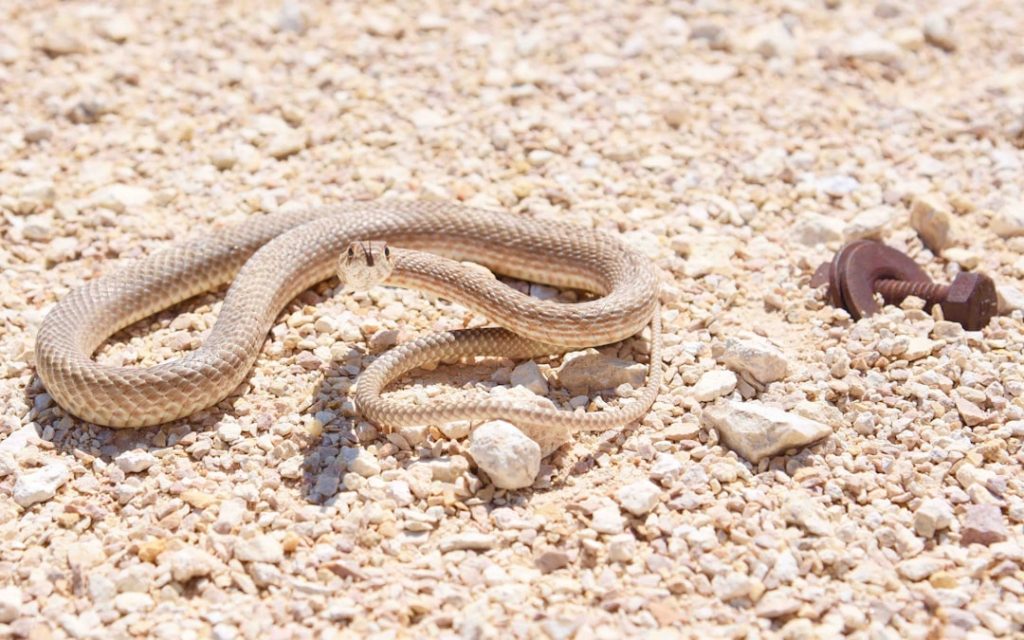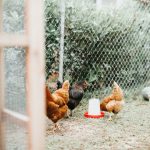Understanding the snake species prevalent in your area is essential for effectively protecting your coop from potential threats. Different snake species exhibit varying behaviors and habits, so identifying the common ones in your region allows you to tailor your prevention methods accordingly. In areas where venomous snakes are common, additional precautions are necessary to ensure the safety of your coop and its inhabitants.
Some common venomous snakes that may pose a threat include rattlesnakes, copperheads, and water moccasins, which are known for their dangerous bites and can be hazardous to both humans and animals. Familiarizing yourself with local snake species enables better preparation for potential encounters and implementation of proactive measures to keep them away from your coop. Understanding snake behavior and habits is equally important.
Some snakes are more likely to seek shelter in coops and other structures, while others may be attracted to food sources such as eggs or small animals. Knowledge of local snake behavior helps identify potential entry points and secure your coop against them. This information also aids in recognizing signs of snake activity, allowing for timely action before a potential threat escalates.
By comprehending the types of snakes in your area and their behavior patterns, you can enhance protection for your coop and its inhabitants from potential harm.
Table of Contents
- 1 Securing the coop: Implementing snake-proof fencing and barriers
- 2 Keeping the surroundings clear: Removing potential hiding spots for snakes
- 3 Implementing natural deterrents: Using plants and essential oils to repel snakes
- 4 Regular maintenance: Checking for and repairing any potential entry points for snakes
- 5 Encouraging natural predators: Attracting animals that prey on snakes to your property
- 6 Educating yourself and others: Understanding snake behavior and teaching others how to react in case of snake encounters
- 7 FAQs
- 7.1 What are some natural ways to keep snakes away from chickens?
- 7.2 What are some physical barriers that can be used to keep snakes away from chickens?
- 7.3 Are there any predator deterrents that can help keep snakes away from chickens?
- 7.4 What should I do if I encounter a snake near my chicken coop?
- 7.5 Are there any plants that can help repel snakes from the chicken coop area?
Key Takeaways
- Identify the types of snakes in your area to understand the specific threats you may face
- Implement snake-proof fencing and barriers to secure the coop and prevent snake entry
- Remove potential hiding spots for snakes around the coop to minimize the risk of encounters
- Use plants and essential oils known to repel snakes as natural deterrents
- Regularly check for and repair any potential entry points for snakes to maintain a snake-free environment
Securing the coop: Implementing snake-proof fencing and barriers
Implementing Snake-Proof Fencing and Barriers
One of the most effective ways to safeguard your coop from snake threats is to install snake-proof fencing and barriers around the perimeter. This will prevent snakes from entering the coop and keep your chickens and other animals safe from potential harm. The fencing should be made of sturdy materials such as hardware cloth or welded wire, with no gaps or openings that snakes could slither through. It should also be buried at least a few inches into the ground to prevent snakes from burrowing underneath it.
Sealing Entry Points and Eliminating Gaps
In addition to snake-proof fencing, it is crucial to seal any potential entry points that snakes could use to access the coop. This includes filling in gaps or cracks in the walls, repairing broken windows or doors, and securing vents and other openings with mesh or wire. By eliminating these entry points, you can further reduce the likelihood of snakes finding their way into the coop.
Regular Maintenance and Inspection
It is also essential to regularly inspect the fencing and barriers for any signs of damage or wear, and make repairs as needed to ensure that they remain effective. By implementing snake-proof fencing and barriers around your coop, you can create a secure environment for your animals and minimize the risk of snake encounters.
Keeping the surroundings clear: Removing potential hiding spots for snakes

Snakes are known for their ability to hide in small spaces and seek out shelter in areas with plenty of cover. To reduce the risk of snakes taking up residence near your coop, it is important to keep the surroundings clear of potential hiding spots. This includes removing piles of debris, such as woodpiles or brush, that could provide shelter for snakes.
It is also important to keep the grass and vegetation around the coop well-trimmed, as tall grass and dense foliage can provide ideal hiding spots for snakes. By keeping the surroundings clear of clutter and overgrowth, you can make it less appealing for snakes to linger near your coop. Another important step in keeping the surroundings clear is to remove any sources of food or water that could attract snakes.
This includes keeping food scraps and spilled feed cleaned up, as well as fixing any leaks or standing water sources that could attract thirsty snakes. By eliminating these attractants, you can make your property less appealing to snakes and reduce the likelihood of them seeking out your coop as a potential hunting ground. Regularly inspecting the surroundings for any signs of potential hiding spots or attractants, and taking steps to remove them, will help create a less hospitable environment for snakes and keep your coop safe from potential threats.
Implementing natural deterrents: Using plants and essential oils to repel snakes
In addition to physical barriers, there are natural deterrents that can be used to repel snakes from your property. Certain plants are known for their ability to repel snakes due to their strong scents or toxic properties. For example, plants such as marigolds, lemongrass, and wormwood are known for their ability to deter snakes with their strong odors.
By planting these types of vegetation around the perimeter of your coop, you can create a natural barrier that snakes are less likely to cross. Additionally, essential oils derived from plants such as cedarwood, cinnamon, and clove can be used to create a snake-repelling spray that can be applied around the coop. These natural deterrents can help keep snakes at bay without posing any harm to your animals or the environment.
Another natural deterrent that can be used to repel snakes is sulfur. Snakes are known to avoid areas with high concentrations of sulfur due to its strong odor, so spreading sulfur granules or powder around the perimeter of your coop can help deter them from approaching. It is important to use caution when using sulfur, as it can be harmful if ingested by animals or humans.
However, when used properly and in moderation, sulfur can be an effective natural deterrent for keeping snakes away from your property. By implementing natural deterrents such as plants, essential oils, and sulfur, you can create an additional layer of protection for your coop and reduce the risk of snake encounters.
Regular maintenance: Checking for and repairing any potential entry points for snakes
Regular maintenance is crucial for ensuring that your coop remains secure against potential snake threats. This includes regularly inspecting the fencing and barriers for any signs of damage or wear, and making repairs as needed to maintain their effectiveness. It is also important to regularly inspect the perimeter of the coop for any potential entry points that snakes could use to access the interior.
This includes checking for gaps or cracks in the walls, repairing broken windows or doors, and securing vents and other openings with mesh or wire. By staying vigilant with regular maintenance, you can identify and address any potential vulnerabilities before they become a problem. In addition to inspecting the physical barriers, it is important to regularly check for signs of snake activity around the coop.
This includes looking for shed skins, tracks, or droppings that could indicate that snakes are present in the area. If any signs of snake activity are found, it is important to take immediate action to address the issue and prevent further encounters. By staying proactive with regular maintenance and inspections, you can ensure that your coop remains secure against potential snake threats and provide a safe environment for your animals.
Encouraging natural predators: Attracting animals that prey on snakes to your property

Attracting Snake-Hunting Predators
One natural way to help control snake populations on your property is by encouraging natural predators that prey on snakes. Animals such as owls, hawks, and certain species of snakes are known for their ability to hunt and consume other snakes. By providing suitable habitat and nesting sites for these predators on your property, you can help create a more balanced ecosystem that naturally controls snake populations.
Creating a Habitat for Natural Predators
This can include installing owl boxes or perches for raptors, as well as creating brush piles or rock piles that provide shelter for snake-hunting species such as king snakes. By attracting these natural predators to your property, you can help keep snake populations in check and reduce the risk of encounters near your coop.
Supporting a Diverse Range of Wildlife
In addition to attracting natural predators, it is important to create a habitat that supports a diverse range of wildlife on your property. This includes providing food sources such as native plants and insects that support a healthy ecosystem. By creating a balanced environment with plenty of natural food sources, you can help attract a variety of wildlife that contributes to controlling snake populations.
Maintaining a Healthy Balance
By encouraging natural predators and creating a diverse habitat on your property, you can help maintain a healthy balance that reduces the risk of snake encounters near your coop.
Educating yourself and others: Understanding snake behavior and teaching others how to react in case of snake encounters
Finally, it is important to educate yourself and others about snake behavior and how to react in case of snake encounters. By understanding the behavior of snakes in your area, you can better prepare for potential encounters and take proactive measures to keep them away from your coop. This includes learning about the types of snakes that are prevalent in your region, their habits and behaviors, as well as how to identify signs of snake activity.
By staying informed about snake behavior, you can better protect your coop and its inhabitants from potential harm. In addition to educating yourself, it is important to teach others how to react in case of snake encounters. This includes educating family members, employees, or anyone else who may come into contact with your coop about how to identify potential threats and how to respond if they encounter a snake.
By providing this knowledge to others, you can help ensure that everyone knows how to react safely in case of a snake encounter and minimize the risk of harm. This may include teaching people how to safely remove a snake from the area or how to seek professional assistance if needed. By educating yourself and others about snake behavior and how to react in case of encounters, you can create a safer environment for everyone on your property.
In conclusion, protecting your coop from snake threats requires a multi-faceted approach that includes understanding the types of snakes in your area, implementing physical barriers, removing potential hiding spots, using natural deterrents, regular maintenance, encouraging natural predators, and educating yourself and others about snake behavior. By taking these proactive measures, you can create a secure environment for your animals and minimize the risk of snake encounters on your property. With careful planning and consistent effort, you can effectively protect your coop from potential snake threats and provide a safe environment for your animals to thrive.
If you’re looking for tips on how to keep snakes away when you have chickens, you may also be interested in learning how to turn a shed into a chicken coop. This article from Poultry Wizard provides valuable information on converting a shed into a suitable living space for your chickens, which can help create a more secure environment and reduce the risk of snake encounters. Check it out here.
FAQs
What are some natural ways to keep snakes away from chickens?
Some natural ways to keep snakes away from chickens include keeping the coop area clean and free of debris, using essential oils such as cinnamon or clove to create a barrier, and keeping grass and vegetation around the coop trimmed.
What are some physical barriers that can be used to keep snakes away from chickens?
Physical barriers such as hardware cloth or snake-proof fencing can be used to keep snakes away from chickens. These barriers should be installed around the coop and run to prevent snakes from entering.
Are there any predator deterrents that can help keep snakes away from chickens?
Predator deterrents such as motion-activated lights or sound devices can help keep snakes away from chickens. These devices can startle and deter snakes from approaching the coop area.
What should I do if I encounter a snake near my chicken coop?
If you encounter a snake near your chicken coop, it’s important to remain calm and avoid startling or provoking the snake. Contact a professional wildlife removal service to safely and humanely remove the snake from your property.
Are there any plants that can help repel snakes from the chicken coop area?
Plants such as marigolds, lemongrass, and wormwood are known to have repellent properties against snakes. Planting these around the chicken coop area can help deter snakes from approaching.
Meet Walter, the feathered-friend fanatic of Florida! Nestled in the sunshine state, Walter struts through life with his feathered companions, clucking his way to happiness. With a coop that’s fancier than a five-star hotel, he’s the Don Juan of the chicken world. When he’s not teaching his hens to do the cha-cha, you’ll find him in a heated debate with his prized rooster, Sir Clucks-a-Lot. Walter’s poultry passion is no yolk; he’s the sunny-side-up guy you never knew you needed in your flock of friends!







